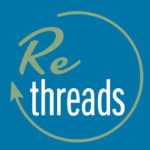 Hey there, Better World Betty readers! My name is Anna, and I’m writing to you from the perspective of a grad student studying environmental law and policy. I am totally psyched about our society becoming greener and more sustainable, and I believe that today’s youth (that means you, students!) are going to be the ones to truly facilitate this change.
Hey there, Better World Betty readers! My name is Anna, and I’m writing to you from the perspective of a grad student studying environmental law and policy. I am totally psyched about our society becoming greener and more sustainable, and I believe that today’s youth (that means you, students!) are going to be the ones to truly facilitate this change.
Any John Mayer fans out there will certainly have heard his song, “Waiting on the World to Change.” In it, he says:
One day our generation is gonna rule the population, so we keep waiting (waiting), waiting on the world to change.
But, why wait? As of 2010, 33.9% of the U.S. population (nearly 105 million people) are 24 or younger. That’s a powerful number. We’ve got a strongly vested interest in the future of our society and our planet. Now all we’ve got to do is voice that interest. If we all speak up, we will no doubt be heard. That’s why I’m writing the “Green Kid On Campus” series – to share with my fellow students some ways that we can green our lives and work toward a greener, more sustainable planet.
First topic? E-CYCLING. We all know that recycling is valuable. But what many people don’t think about is the importance of E-CYCLING. E-cycling refers to the recycling of electronic waste (aka, “e-waste”). Unsurprisingly, ownership of electronic products has increased dramatically in recent years – the Consumer Electronics Association approximates that the average American household owns 24 electronic devices. Cell phones, laptops, TVs, DVD players, gaming consoles, alarm clocks, handheld phones, toasters – they easily add up.
What’s the big deal? Well, we’re replacing these electronic products with increasing rapidity as the pace of technological advancement quickens. So, we’re getting a new cell phone every 1.5 years when our contract is up for renewal just because we can get something even better. But, what happens with your old phone? If sent to a landfill, your electronic devices can leach lead, nickel, cadmium, and mercury into the ground and the water supply. Each of these heavy metals can be harmful to both the environment and human health (with increased risk for lung disease, neurological issues, skin irritation, and certain cancers). I think we can all agree that’s not ideal, right?
So, what’s the alternative? The EPA tells us that most electronic products don’t have to be thrown away and can, in fact, be reused (in whole or in part) or deconstructed and recycled. In 2009, 2.37 million tons of electronic products were discarded, only 25% of which were recycled. We could be recycling a lot more. A few interesting facts about electronics recycling:
• Recycling one million laptops could save enough energy to power 3,657 U.S. homes for a full year.
• Recycling electronic products saves energy and resources by reducing the need to extract raw materials.
• From every million cell phones that are recycled, we can extract 35,274 pounds of copper, 772 pounds of silver, 75 pounds of gold, and 33 pounds of palladium.
• Recovering these materials could save the equivalent of the electricity used by 24,000 U.S. homes in a year.
Currently, there are no federal regulations requiring that e-waste be recycled, but people are beginning to take notice of this growing problem.
Are you ready to act? Find out from EPA where you can recycle your electronics. Here in Charlottesville, both Best Buy and Staples offer recycling for TVs, computers, and cell phones. Plus, AT&T in Charlottesville will accept your old phones to donate to the domestic violence shelters or to retired soldiers. So the next time you’re upgrading your electronics, I hope you’ll consider recycling them (or holding onto them for reuse in case your new device breaks) – it’s definitely worth the effort!
_________
Anna Joyce Gayle is a graduate student working on her Master’s in Environmental Law and Policy. She interns at The Nature Conservancy, where she researches legal policy, and she volunteers with Better World Betty, where she helps with communications. Anna received her undergraduate degree from UVA in Commerce (Marketing, International Business). She’s a fan of green living, organic unprocessed food, yoga, cooking and baking, and movies. To read more of Anna’s writings on sustainability and climate change, check out her blog – greenismything.com.
{ Comments on this entry are closed }




